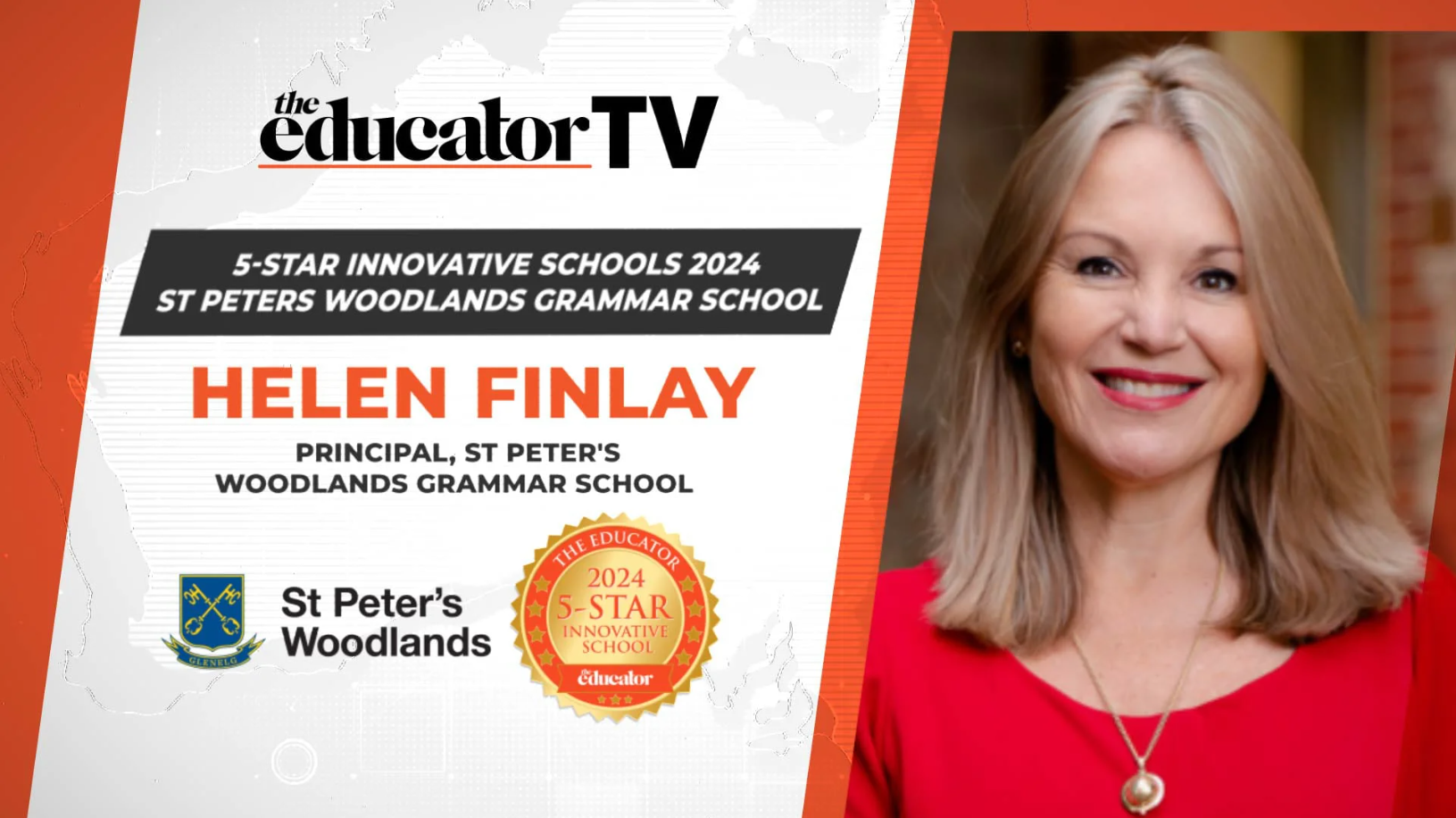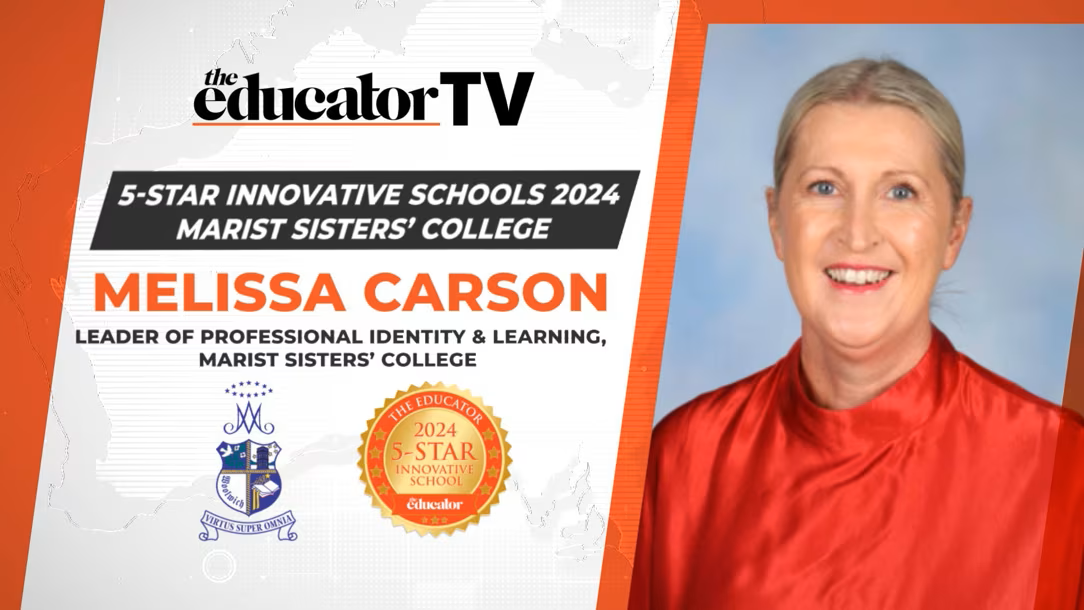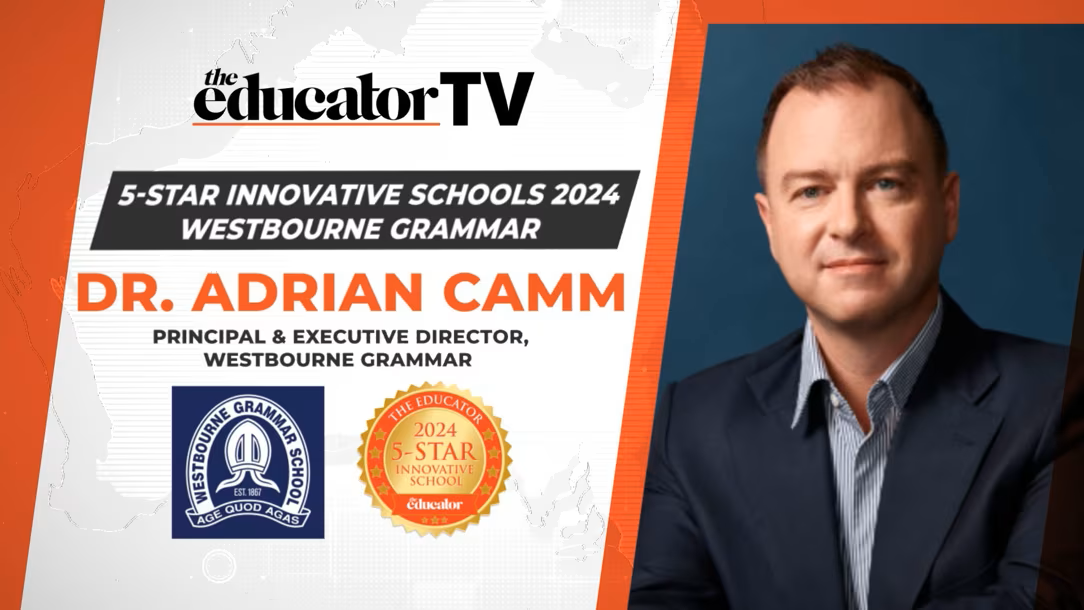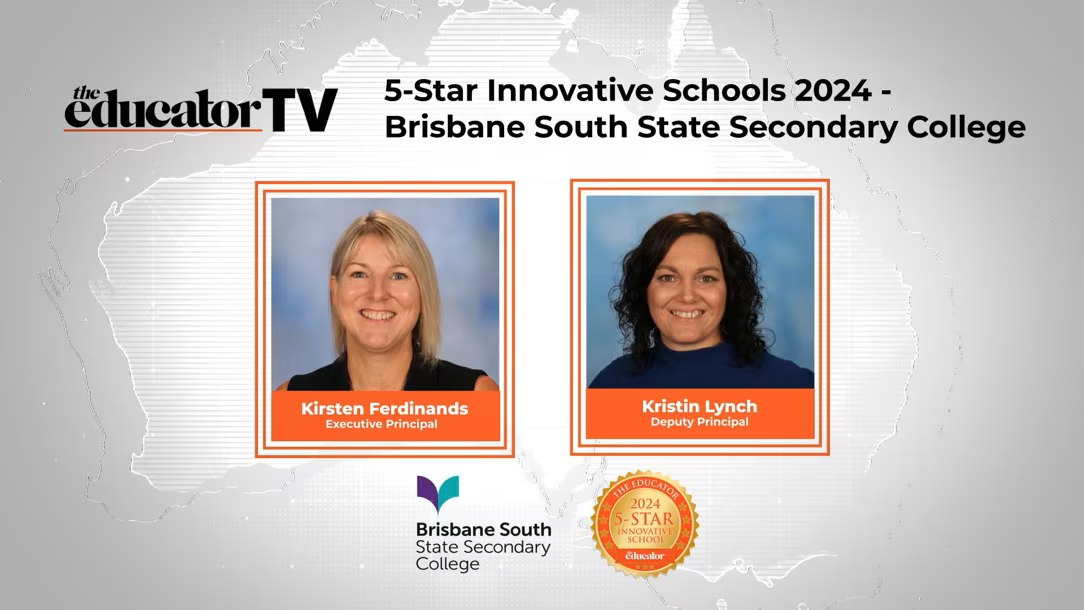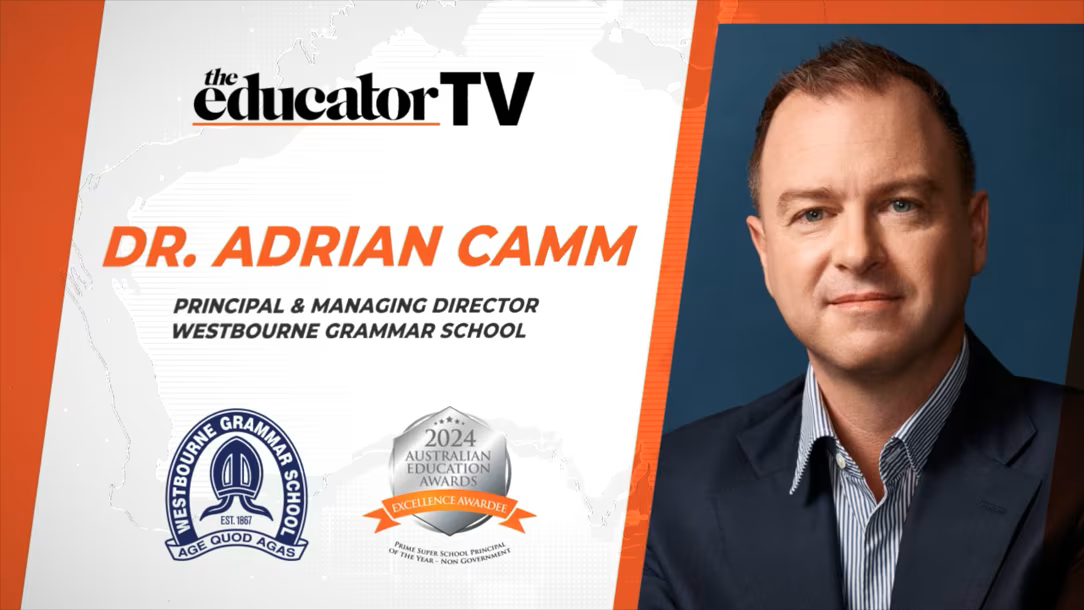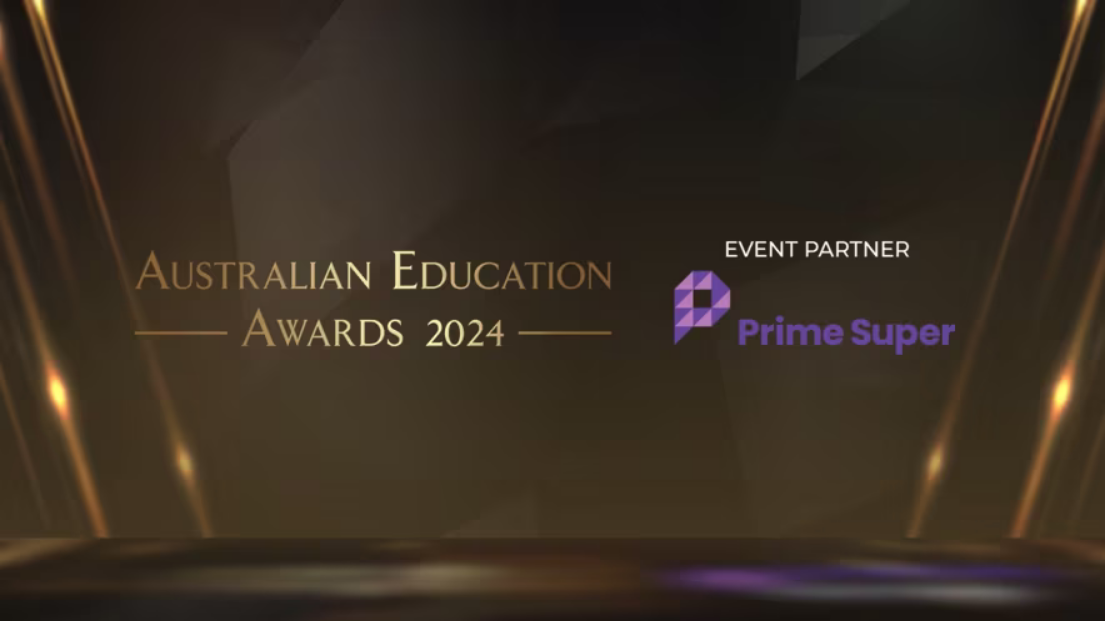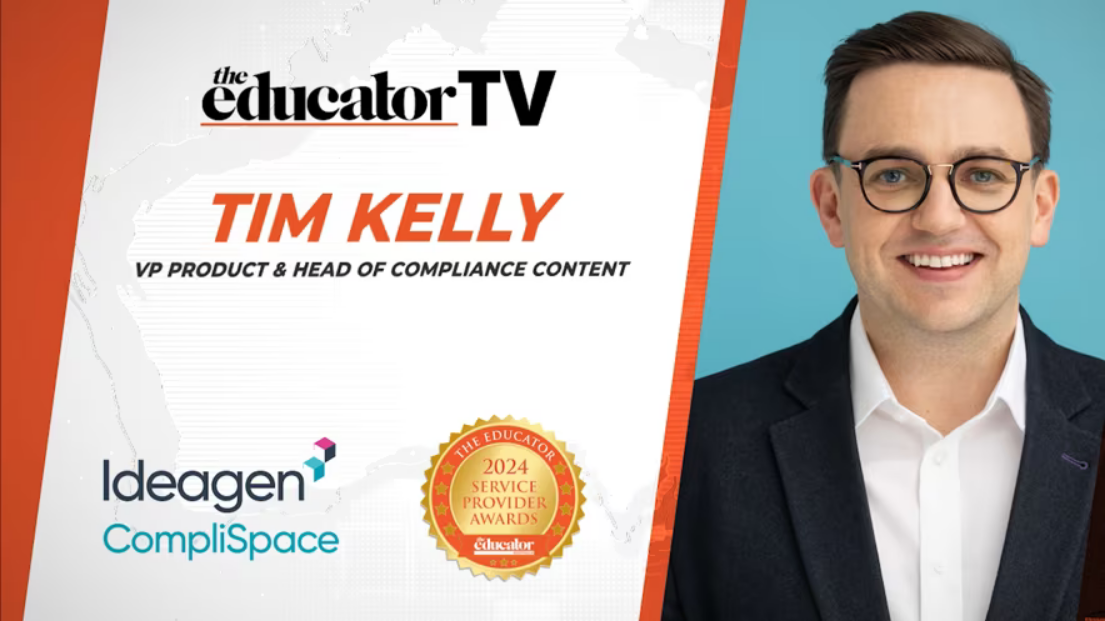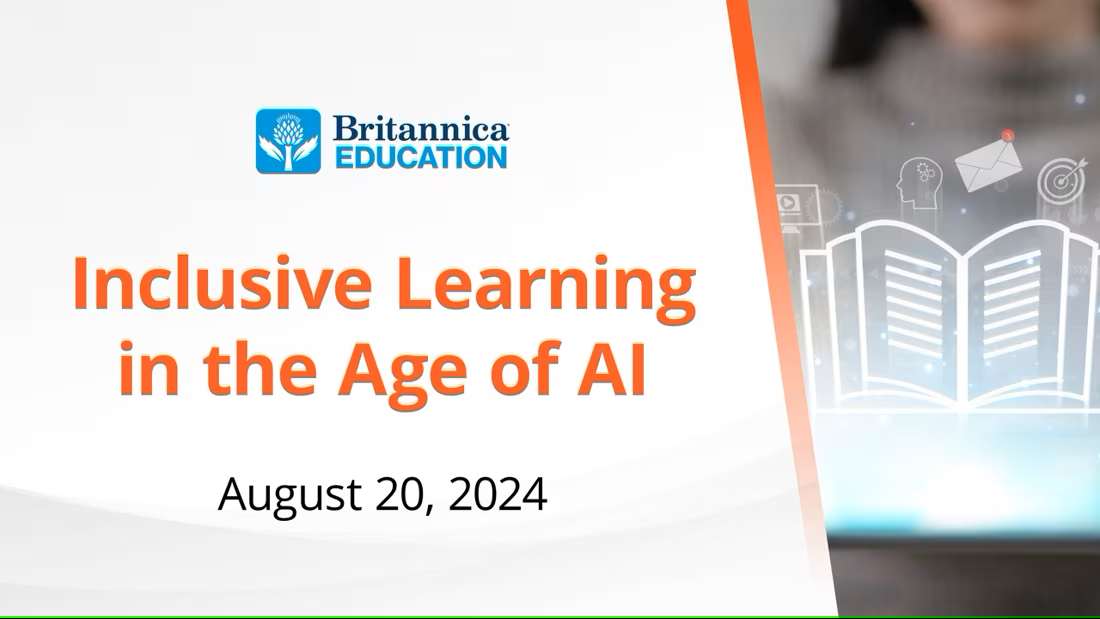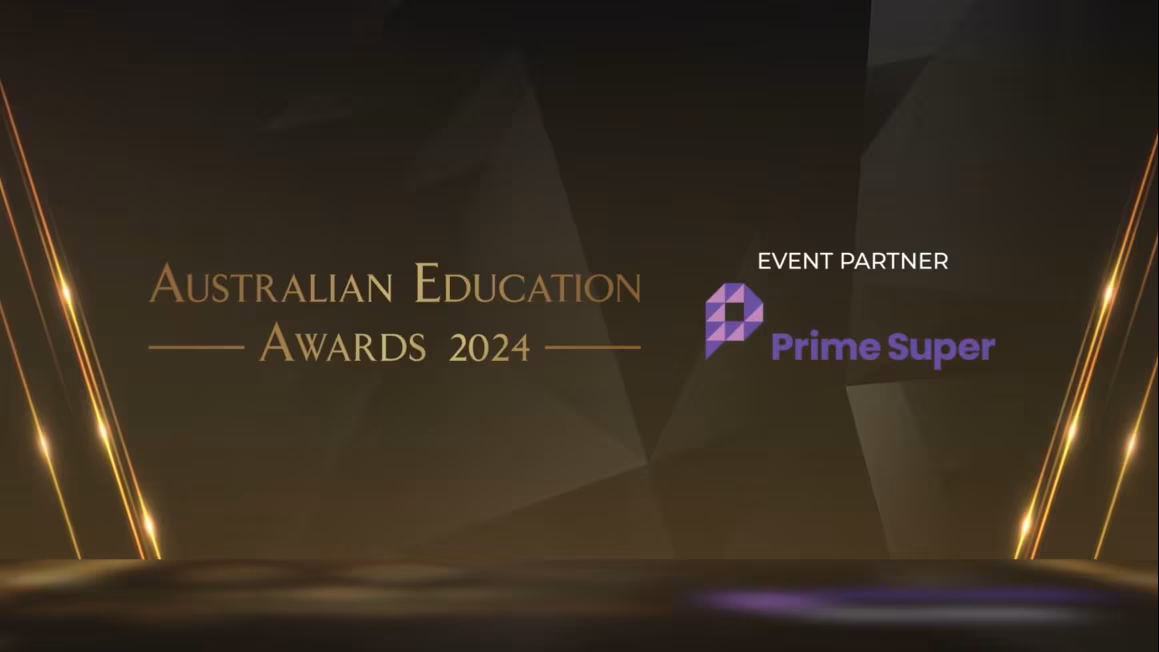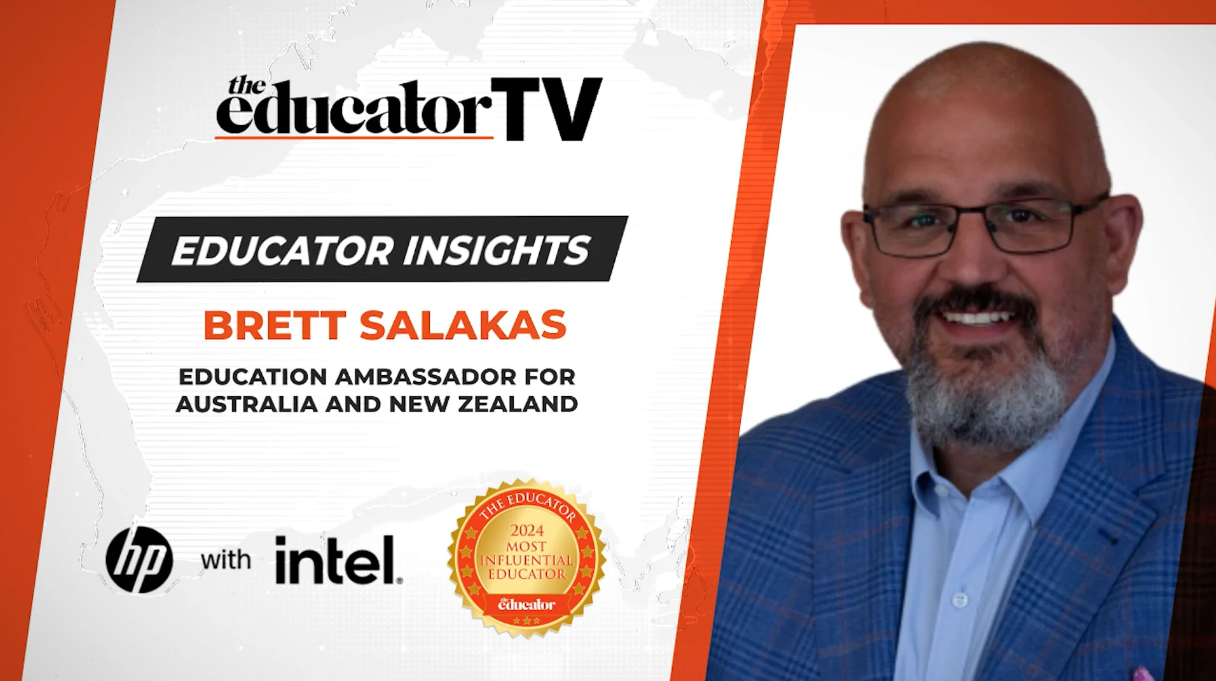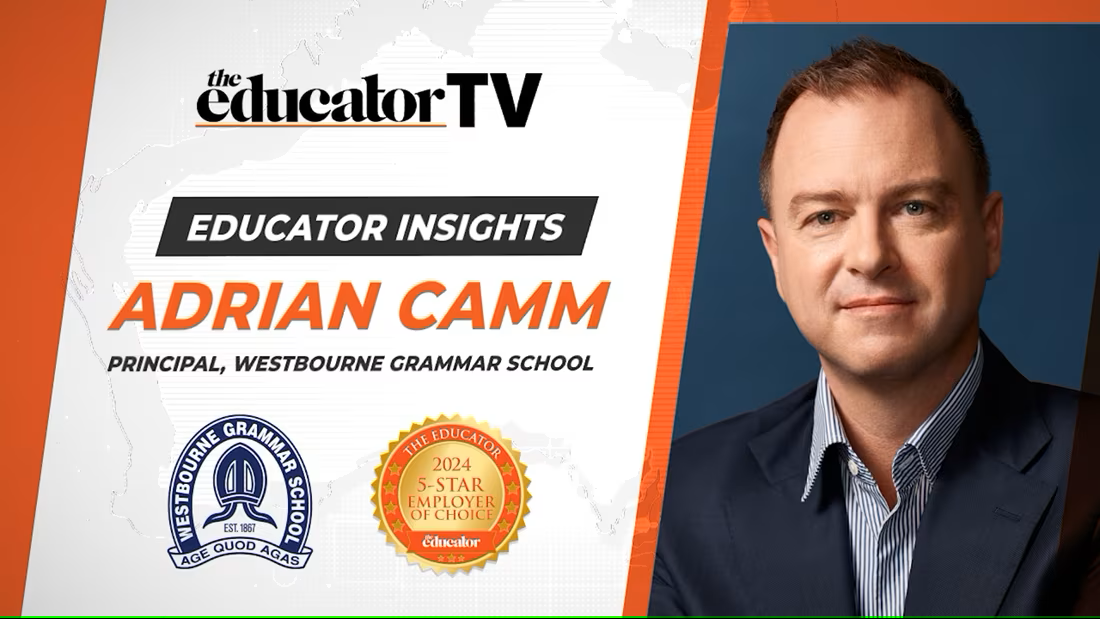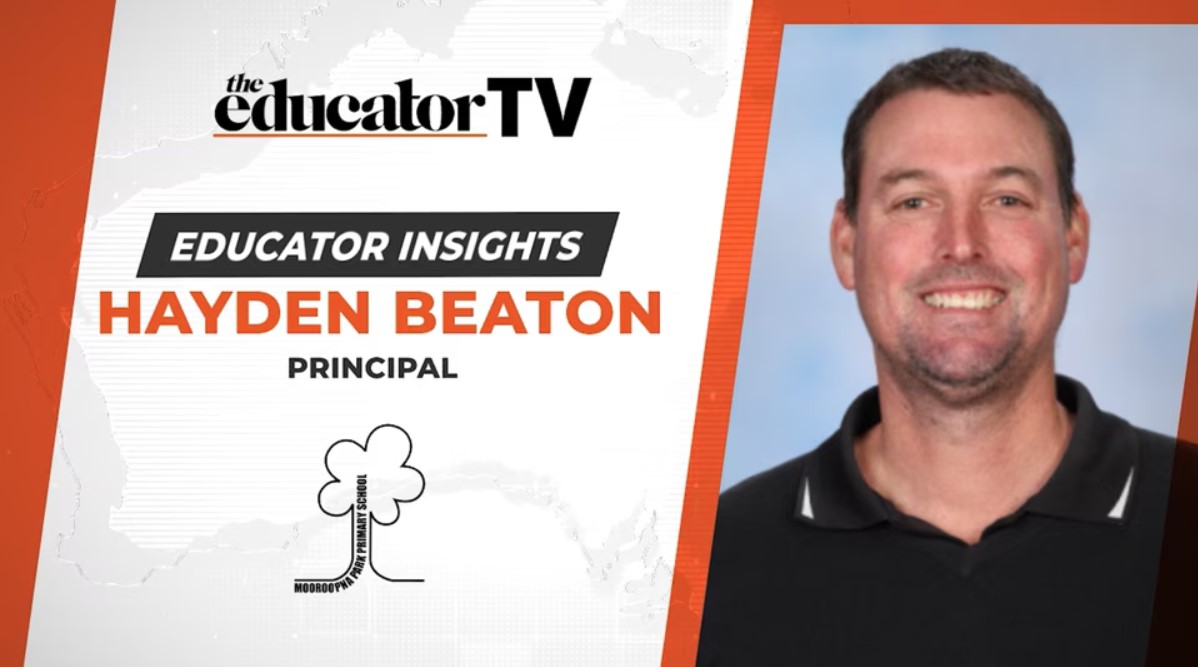Innovating through disruption
In this episode, join Brisbane South State Secondary College’s executive principal, Kirsten Ferdinands, whose school recently won an Excellence Award for Innovation in Curriculum Design. Kirsten shares some powerful insights about the teaching and learning outcomes at her school, and the year 2022 is shaping up to be for Australian education.
To view full transcript, please click here
Brett: [00:00:14] Hello and thank you for joining us today. I'm Brett Henebery, editor at the educator. And joining me today is Kirsten Ferdinands, who is the executive principal at Brisbane South State Secondary College. But the Australian Education Awards in December, the college received an excellence award for Innovation in Curriculum Design. Today, we'll be talking to Kirsten about the school's innovative approach to education and the impact it's been having. Our Kirsten. First of all, a big congratulations to you and the college on winning this award. Perhaps you can start off by telling our viewers a bit about the college's approach to curriculum design.
Kirsten: [00:00:50] It's an exciting place to be and as foundation principal, an amazing opportunity to create not just a school, but the curriculum and the philosophy behind how we would approach student learning in our college. So in creating curriculum, we knew that we didn't want to continue to do what had been done. It was an opportunity to work with our key collaborator, the University of Queensland, to develop curriculum for our students. But approaches to learning that were unique that we knew would be engaging, but certainly would give opportunities for students to to reach out beyond just the school grounds as well. So working with the University of Queensland and a lot of other organisations within our knowledge corridor of where the schools created, we were able to create a unique approach to learning where our students were at the centre of everything that we did. So we knew that we had the Australian curriculum and our key learning areas, which we needed to cover. But we also knew that we wanted our students to engage in inquires beyond just the Australian curriculum and some of the unique approaches to learning that our students get is through. We have micro courses where the students not only experience learning in an area that they're passionate about, but have had an opportunity to have student voice and agency in co-designing some of those learnings as well. Our students engage in what's called learner-preneur, so it's a unique take on what was traditionally a home group or what would just be a social skills activity where our students focus on themselves as a learner. So they understand, they unpack who they are and their self understanding. They begin to understand how they make connections with curriculum and learning and each other. And then also to they will begin and are already beginning around the contributor of learning. So how do they contribute beyond just a classroom and in society and in general and in a broader sense? So curriculum for us is around the general curriculum and general capabilities, but also developing competencies, our global competencies. And that's a very big part of not only what we're embedding in our curriculum design, but also to how we're actually having our students and our teachers track that. So they're actually self reflecting, getting feedback from teachers. But we're actually now keeping evidence and reporting back to parents. So our students actually do student led conferences every year with their parents. We're actually using evidence and conversations around competencies and learning to shape where they're at, but where their goals are and where their future lies as well.
Brett: [00:03:39] Can you tell us a bit about the impact that's been having on teaching and learning over the past 12 months?
Kirsten: [00:03:45] One of the most amazing things of starting a new school is you don't know what the success or the impact in students is until you actually see the evidence. And some of that is data and will always go back to what the data sets say. So for for yourself, Brett and everyone else, what does the data say? The data is outstanding. Our students are the highest performing students in numeracy in our region, but also across the state in literacy as well. We have students where by they are tracking at some of the highest results, both in those A's and B's, but in the age of C percentages across the board for all subject areas, but particularly in literacy and numeracy. Our students in those top two bands are the highest performing students in the metropolitan region. And and then broader afield. So we know they're doing extremely well. And the other evidence that we use is around the well-being. And for our students, it's about their self reflection. And we've took part in the wellbeing survey, which our State Department of Education put out this year last year. So our students again performed extremely well in their self-reflection around how they believed they were tracking around their resilience, their their wellbeing, their their ability to approach things that were new, how they had developed great relationships with their teachers and one another to support learning and to support life in general as well. And in just through our our student led conferences at the end of twenty twenty one, our students reflecting on themselves as a learner and what they had achieved their ability to set challenging learning goals for themselves moving forward and equally, the parents. Reflection about their students engagement in school and their positivity about their prospects for the future was outstanding as well.
Brett: [00:05:47] And it was the saying goes if it's not broken, don't fix it. But are there any ways in which the college will be expanding on this program at all?
Kirsten: [00:05:55] So absolutely. And I think if it's not broken, don't fix it. And the Education Improvement Branch from Education Queensland visited the school at the end of last year to do their first internal school review. And they will always do that with a new school. And they identified that we were one of the highest performing schools and new schools, but they'd seen and for some of them in their entire career. So it's not broken. Don't fix it. But one of our challenges is as we grow, how do we scale things up? So we've we started with one cohort of students who were year seven. They're now in year eight and we've taken on an additional two hundred and fifty year seven students, which has meant also to doubling staff. So our challenge is how do we continue to review what we do? How do we continue to induct our new people, both students and staff, into the processes that we know are important but equally to? For us, it's about that student voice and agency that we continue to make sure that the students are at the centre of everything that we're doing so that our students are the ones who are reviewing. Is this working for them having voice into what and how they would like to continue to learn or be learning with and equally to know as our well, our school culture and traditions are only just starting. The student agency for us is is is really important that students have a say in what to the next years of their their schooling life look like and what does senior look like? We're doing a lot of work around working with the university and other key partners for us as around what's the future of schooling look like. We're having a think tank coming up very, very soon where we'll explore the avenues to make sure that we're making sure that our school is the best for our students now, but into the future, because we want to make sure every student has a successful pathway and what has traditionally happened in schools, is that the right way? Who knows, for our students, they'll let us know what they would like to be engaged in. And with the research and the experts with us, we'll we'll look at what that how that shapes up.
Brett: [00:08:13] Well, I'll be interested in knowing the outcomes from the think tank. So maybe that's a conversation for the next time.
Kirsten: [00:08:19] Yeah, absolutely.
Brett: [00:08:21] Now, Australian education certainly getting quite the shake up this year. Looking ahead, what do you think will be the most important considerations for schools and school leaders when it comes to curriculum design?
Kirsten: [00:08:31] Definitely a big, big thing for us and I think a big thing for us. Schools Australia, wide and internationally is around the wellbeing piece and it's not a bolt on. It has to be true, truly embedded in what we do with our students, and it's about the work that we do at forefront around students understanding who themselves, who they are. So that's self understanding who they are individually and as a person around that well being part, but also as a learner. And how do their approaches to working through challenging tasks or engaging with new concepts or equally to taking on their significant barriers and making sure that that's part of the learning work and it's happening across classrooms, it's happening across curriculum areas that needs to be a key part of what we're all doing. But the other part is that whilst having high expectations are there and having, you know, students and families understand that there is an academic rigor in the work that we do, it's about how we do that. Understanding each unique student and understanding the learning needs to be authentic for students really to engage in that and to inquire, it needs to be authentic. And one of the things that we know and we've been very privileged as a new school starting out is that leveraging digital, how do we use what a lot of people have had to to to rely on through COVID and through this online learning or hybrid approaches and everything else? But how do we truly make sure that it's part of what we use well and how we access and how we leverage that technology into what we do moving forward? And and for our students, it's how do they develop their competencies knowing that they're they're leveraging digital in the work. And it's it's just viewed as how they access learning, how they collaborate, how they share learning. But equally too, it just becomes part of us moving into that future with careers and. And the world expects that us to be quite proficient in using technology as we move forward as well.
Brett: [00:10:46] Thank you very much for walking us through that and giving us such powerful insights into what your school's been doing. That's all from me, but I just wanted to say thank you again for your time and also thank you to our viewers who joined us today and we'll see you again in our next video.



